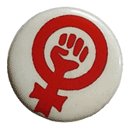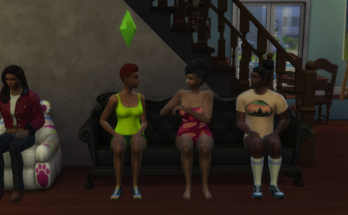By Cassidy Cavanah
The Scripps Voice online website is a great example of a feminist and color safe space. As a student publication at a women’s liberal arts college, the articles are critical and questioning of our society today and actively work towards a greater goal of making this world a better place for women and people of color. They are thoughtful, academic, and typically challenge one aspect or another of the 5-C community or society at large. It is not a space where you fear being attacked or harassed, there is no symbolic violence, it is woman centered (but not anti-male), and you can feel comfortable voicing your opinion. Each of the definitive requirements for a safe feminist space are met, and having spent hours reading current and past articles, searching through the (minimal) comments and even posting several of my own, I can say from experience that this is a safe place to inhabit online. With an Internet culture that calls to mind images of the ‘Wild Wild West’, The Voice is a welcomed respite from anonymous attacks and unproductive commentary.
While many articles do address race issues and is a safe place for such discourse, The Voice is a much more noticeably feminist space. Articles with titles such as “Male feminists: a silent minority” and “Scrippers and Scripstitutes: discovering the 5-C stereotypes” feminist issues are clearly a hot topic and the articles are stimulating and insightful. This quote from the article, I am not a delicate flower by Julia Behnen reads, “As ‘the women’s college’ in the consortium, everything we do will inevitably be reflected back on our nature as women in the perception of the other colleges. It’s unfortunate but true. We are not yet in a post-gender society; there is fighting yet to do in the battle for full equality”. It explicitly points out a specific issue surrounding Scripps College, calls to attention the fact that we are not yet post-gender, and calls to action the students and administration to make an active change for the better. This sort of conscious activism is necessary in a truly feminist space. While the amount of discourse and commentary stimulated within the actual media space is rather low, I believe through my own experience that these articles stimulate critical discourse in reality amongst friends in the dorms or dining halls instead. This sort of experience makes The Voice unique because it naturally functions within a physical space and media space simultaneously while discouraging the often unproductive online commentary so characteristic of the Internet. However, with the majority of the discourse kept offline, the Scripps and 5-C community as a whole cannot learn or benefit from each others opinions or ideas that may be developed between smaller groups of friends. Similarly, I wonder how many of the ideas kept offline end up being relayed to a person of influence to actually stimulate real change. If more of the discourse took place within the actual media space of The Voice online, might more members of the administration be exposed to our concerns and ideas to possibly take action?
The sites that helped me better understand my own were surprisingly quite different from The Voice. Watching the presentations of online spaces that were hugely accessed and public exemplified the somewhat uncontrollable nature of the Internet and showed me how a smaller media space that is directly associated with a physical community, such as Scripps College, functions differently. While I may wish more people would become active on The Voice website and freely comment, these larger websites with excessive amounts of commentary from anonymous sources proved to be frequently contrary, distracted, offensive, and all around unproductive to the cause. By understanding the nature of those sites, I was better able to understand and appreciate the small, less active nature of my online feminist space. My frustration with the lack of feedback morphed into appreciation as I saw the unique opportunity it presents by stimulating discourse in reality amongst friends whose opinions you respect and trust rather than with strangers.
In my feminist space I tried to arouse a response from either the person whose article I commented on or other readers of the post. When this didn’t work, I proceeded to explicitly present my critique of The Voice’s lack of commentary that was somewhat different than what I just expressed. Although I now understand the merit of offline discourse, I focused on how it was a shame that more students were not commenting on articles that were so important and provocative. I discussed how I thought that we as a community were missing out on an amazing opportunity to engage in a truly safe feminist space that is unique and hard to find in the media sphere—one where powerful ideas and dialogue could develop into real-life action. While I still do hold to these claims, my stance has now just broadened to include an appreciation for the different ways that The Voice may function beneficially offline. Because The Voice is such a small site that I have been personally involved with, I feel pretty proficient regarding my use and understanding of the site. However, I do think I need to continue my exploration of the interaction between The Voice content online and conversations or commentary taking place offline, which I will tackle myself by intentionally staging or engaging my own friends with The Voice content to discuss in real life that I will observe and record for further ethnographic study.


Hey Cassidy! I really enjoyed reading your piece. I’m wondering what you feel The Voice could do to be even more inclusive and represent more people of color?